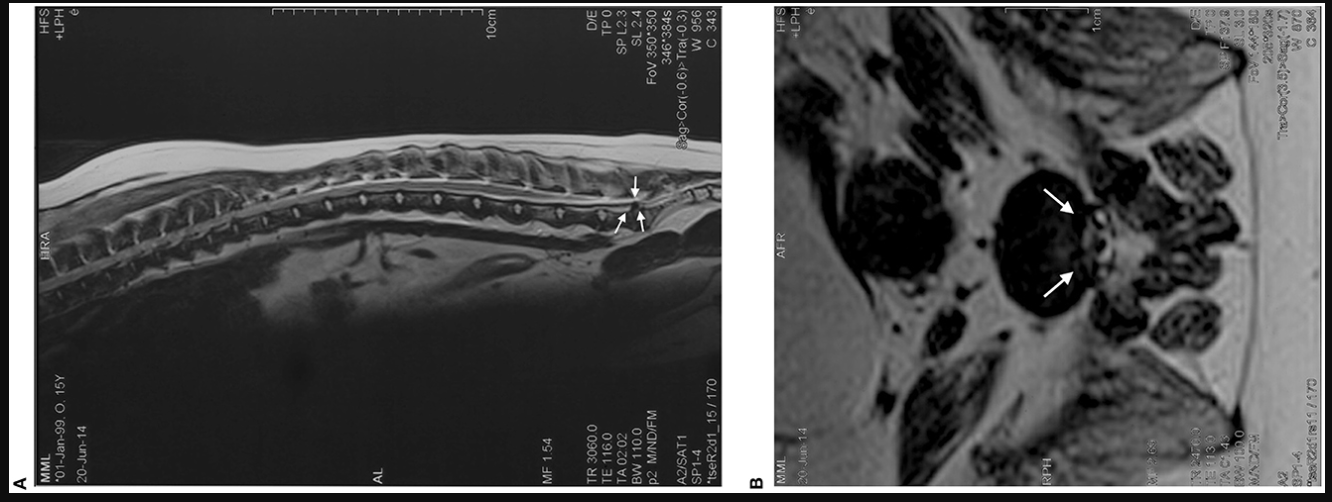Case Report: Successful Therapy of Spontaneously Occurring Canine Degenerative Lumbosacral Stenosis Using Autologous Adipose Tissue-Derived Mesenchymal Stem Cells

Elita Summary
Degenerative lumbosacral stenosis (DLSS) is a painful, progressive condition with limited long-term management options outside of surgery. In this 2021 case report, Mrkovački et al. detail what they describe as the first reported case of successful treatment of naturally occurring DLSS in a dog using autologous adipose-derived mesenchymal stem cells (AD-MSCs). The case highlights the long-term durability of treatment effect and supports the use of a single AD-MSC preparation protocol across multiple orthopaedic indications.
Study Design at a Glance
- Study type: Single-subject case report
- Subject: A 9-year-old, 55 kg male neutered mixed-breed dog with confirmed DLSS unresponsive to NSAIDs and physical therapy
- Intervention:
- Subcutaneous fat was harvested and processed using the same lab protocol previously validated by the authors in a 2018 osteoarthritis (OA) study
- Cultured autologous AD-MSCs (5 million cells) were injected epidurally at L7–S1 under sedation
- Outcome tracking: Clinical evaluations and owner observations over a 4.5-year follow-up period
Key Findings
- Clinical resolution of signs: The dog showed marked improvement in mobility and reduction in pain behaviours within 10 days post-treatment
- Return to normal activity: By 30 days post-injection, the dog had resumed full, unrestricted activity
- Long-term durability: At 4.5 years post-treatment, the dog remained free of clinical signs, without additional interventions or medications
- No adverse events: The procedure was well tolerated, with no complications reported
Limitations
- Single case study: Outcomes may not be generalisable; further studies are needed to confirm efficacy in a broader population
- No imaging follow-up: Improvements were assessed clinically and by owner report, without MRI confirmation of anatomical change
- Lack of control: Without a comparator, spontaneous remission cannot be fully ruled out (though considered unlikely)
Why It Matters to Us
This paper presents the first documented case of successful long-term treatment of spontaneously occurring DLSS using autologous AD-MSCs, with a sustained clinical response lasting over 4.5 years. It builds on the authors’ prior work using the same AD-MSC processing protocol to treat canine osteoarthritis, and offers compelling early evidence that a single MSC preparation method may produce therapeutically effective cells across multiple orthopaedic indications.
At Elita Genetics, this supports our focus on developing standardised, high-quality stem cell protocols with broad clinical applicability. Importantly, the durability of this response reinforces the value of early cell banking, not just for known joint issues, but for unforeseen conditions that may arise years down the track.
